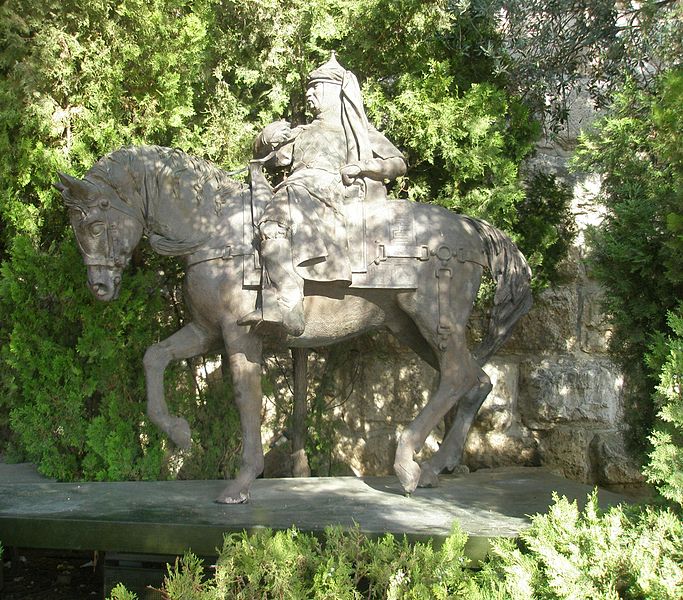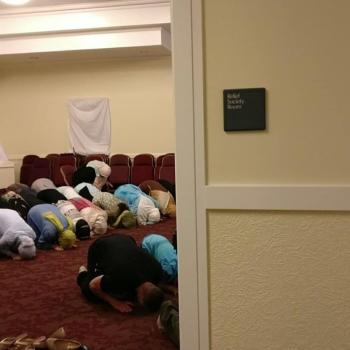
(Wikimedia Commons)
Continuing to move very slowly ahead:
How was the Islamic world able to maintain so much unity in the midst of political chaos and breakdown? Perhaps the crucial factor was the existence of the international class that we have called the ulama. These religious authorities, whom I have compared to Jewish rabbis, received the same education wherever they were. They read the same books, cited the same authorities, spoke the same language. Thus, they were able to stand above regional peculiarities and to transcend local politics. A Muslim religious judge could work equally well in Morocco or India or Egypt. And, in fact, some, like the great historian and social theorist Ibn Khaldun, actually did. The long period during which the ulama had worked out their legal theories now paid off. The Islamic institutions that had been developed to function in opposition to the state now worked perfectly well in virtual independence of it and without regard to the constantly shifting political situation that characterized the Middle Periods.
The illustrious Saladin, famous in the West as the chivalrous opponent of Richard the Lionheart, mercifully put an end to the long-sick Fatimid dynasty in the latter half of the twelfth century.[1] The last Shiite threat was gone. (It had actually died years before. Saladin merely signed the death certificate.) He eventually managed to drive the Crusaders out of Jerusalem as well and put an end to that Crusader state. A word about Saladin is timely here: He is widely regarded as a great Arab hero, and with good reason. (Even Dante Alighieri, devout medieval Christian that he was, put Saladin in the very highest circle of his Inferno among those virtuous heroes such as Hector, Socrates, Plato, Aeneas, Caesar, and his own guide through Hell and Purgatory, Virgil, whose only sin was that they had never received baptism.)[2] In recent years, some Arabs—to say nothing of the dictator himself—tried to portray Saddam Hussein as the new Saladin. But there is no comparison. Beside the moral gulf that separates the two, there is yet another highly ironic difference: Although he spoke Arabic, Saladin was not ethnically an Arab, but a Kurd. Had he come back to life in the time of Saddam, it is true that Saladin might well have been ruling Baghdad. Not, however, in the role of Saddam Hussein, the butcher of Kurdish civilians. Instead, he would almost certainly have been their indignant avenger.
[1] Arabic Salah al-Din, pronounced Sa-LAAH ad-DEEN (with a strong “h“).
[2] Dante, Inferno, Canto IV, line 129.












